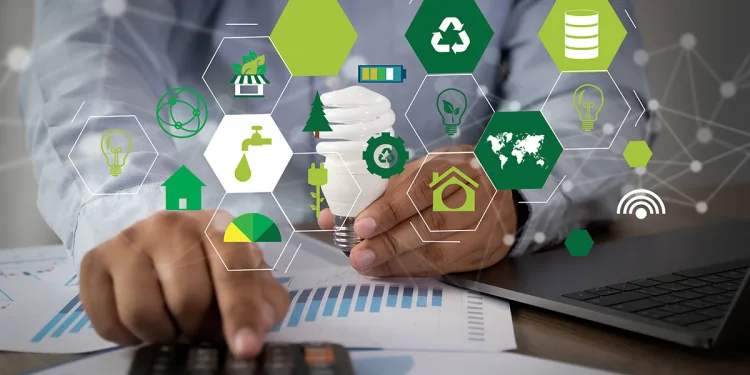As someone deeply involved in the business world, I’ve witnessed a dramatic shift in how companies operate—especially in recent years. Gone are the days when profitability was the only marker of success. Today, businesses are increasingly judged by their environmental and social impact. This shift marks the rise of sustainable business practices—a movement that is reshaping the future of commerce.
In this article, I’ll explore what sustainable business means, why it has gained momentum in the 21st century, and how companies are adopting greener, more responsible strategies to thrive in a changing world.
What Are Sustainable Business Practices?
At its core, sustainable business is about balancing profit with purpose. It refers to strategies and operations that meet present needs without compromising the ability of future generations to meet theirs.
This often involves three key pillars:
- Environmental sustainability – reducing carbon footprints, using renewable resources, minimizing waste.
- Social sustainability – ensuring fair labor practices, supporting communities, and promoting equity.
- Economic sustainability – maintaining long-term profitability without harming people or the planet.
Why Sustainability Matters Now More Than Ever
1. Climate Change and Environmental Urgency
The realities of climate change are impossible to ignore. From wildfires to rising sea levels, the planet is sounding the alarm. Businesses are now expected to do their part in reducing environmental harm.
2. Consumer Expectations Have Changed
Modern consumers—especially Gen Z and Millennials—prefer brands that align with their values. People want to support companies that care about the environment, social justice, and ethical practices.
3. Investor and Regulatory Pressure
Sustainability is now a financial priority. Investors are increasingly pouring money into companies with strong ESG (Environmental, Social, and Governance) performance. At the same time, governments are tightening regulations on emissions, waste, and ethical sourcing.
4. Reputation and Brand Loyalty
Companies with transparent, sustainable practices often enjoy stronger brand loyalty. A good reputation can be a powerful competitive advantage in today’s marketplace.
Real-World Examples of Sustainable Business Practices
🌱 Patagonia
The outdoor apparel company is a poster child for sustainability. From repairing gear to using recycled materials, Patagonia builds its brand around environmental activism.
☕ Starbucks
Starbucks has committed to reducing carbon, water, and waste by 50% by 2030. They’re also investing in ethically sourced coffee and eco-friendly packaging.
🛍️ IKEA
IKEA aims to become climate-positive by 2030. Their approach includes using renewable materials, offering furniture take-back programs, and investing in circular product designs.
How Businesses Are Embracing Sustainability
1. Sustainable Supply Chains
Companies are re-evaluating how their products are sourced, made, and delivered. They’re choosing eco-friendly materials, working with ethical suppliers, and cutting unnecessary emissions.
2. Green Innovation
Sustainability drives innovation. From biodegradable packaging to electric delivery fleets, many firms are creating greener alternatives to traditional processes.
3. Corporate Social Responsibility (CSR)
CSR programs support community development, education, diversity, and more. These efforts show that a business is committed to making a positive social impact.
4. Energy Efficiency
Many businesses are switching to renewable energy sources, installing solar panels, upgrading to energy-efficient lighting, and improving insulation to reduce costs and environmental impact.
The Business Benefits of Going Green
Contrary to old beliefs, sustainability isn’t just good for the planet—it’s good for business. Here’s how:
- Cost Savings: Efficient operations mean less waste and lower energy bills.
- Customer Loyalty: Consumers are more likely to support and stay loyal to responsible brands.
- Investor Interest: ESG-aligned companies often attract long-term investors.
- Talent Attraction: Purpose-driven businesses attract passionate and engaged employees.
Challenges to Sustainable Business
While the rise of sustainable practices is promising, it’s not without hurdles:
- Upfront Costs: Investing in green technology can be expensive initially.
- Supply Chain Complexity: Ethical sourcing and monitoring emissions across a global supply chain can be difficult.
- Greenwashing Risks: Some companies falsely claim to be eco-friendly for marketing purposes—damaging consumer trust when exposed.
Overcoming these challenges requires transparency, commitment, and ongoing education.
My Personal Take on Sustainability in Business
I’ve worked with businesses at various stages of their sustainability journey. Some started with simple changes like reducing paper use or switching to LED lighting. Others made bold moves—like offsetting their entire carbon footprint or redesigning products with sustainability in mind.
What stood out to me was that real change starts with leadership. When executives genuinely believe in sustainability—not just as a marketing trend but as a core value—the results are powerful and long-lasting.
What’s Next for Sustainable Business?
Looking ahead, I believe that sustainability will move from a “nice-to-have” to a non-negotiable part of doing business. Technologies like AI, blockchain, and IoT are already helping companies track and reduce their environmental impact. At the same time, more global standards and frameworks are emerging to guide ethical operations.
In the 21st century, the most successful businesses will be those that innovate not just for profit, but for people and the planet.
Final Thoughts
Sustainable business practices are not just a trend—they are a transformative movement that’s redefining success. Whether you’re a startup founder, an investor, a consumer, or a student of business, understanding and supporting sustainability is key to shaping a better future.
As we move forward, let’s embrace this shift—not just because it’s good PR, but because it’s the right thing to do.
FAQs
1. What are sustainable business practices?
They are strategies that minimize environmental impact, support social equity, and ensure long-term economic health.
2. Why are businesses becoming more sustainable?
Due to climate change, consumer demand, investor interest, and increasing regulations, companies are rethinking how they operate.
3. What are some examples of sustainable practices?
Using renewable energy, ethical sourcing, reducing waste, and investing in community programs are common examples.
4. Does sustainability hurt profitability?
Not necessarily. Many sustainable practices save money over time and attract loyal customers and investors.
5. What is greenwashing?
Greenwashing is when a company falsely claims to be environmentally friendly for marketing purposes without meaningful actions.






